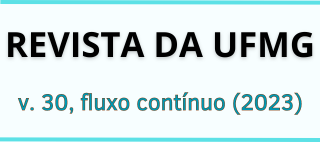Ética e inteligência artificial
desafios e melhores práticas
DOI:
https://doi.org/10.35699/2965-6931.2023.47673Palavras-chave:
inteligência artificial, ética, aprendizado de máquina, aprendizado profundo, viés algoritmoResumo
O rápido avanço da inteligência artificial (IA) trouxe consigo a necessidade de compreensão de seu impacto social e implicações éticas. Nesse sentido, este artigo levantou e discutiu as principais questões éticas relacionadas à IA, os principais obstáculos atuais no desenvolvimento de algoritmos de aprendizado de máquina, e as melhores práticas para desenvolver algoritmos éticos e justos. Os vieses podem se perpetuar facilmente através do uso de dados desbalanceados e de correlações infundadas. Diante disso, a colaboração entre desenvolvedores de algoritmos e outros especialistas torna-se fundamental para compreender diversas perspectivas e identificar as sutis formas de propagação dos preconceitos. A ética dos algoritmos não é uma questão que será solucionada apenas através de uma abordagem tecnológica – essa temática envolve também assuntos de ordem social, cultural, jurídica e política. Portanto, o desenvolvimento tecnológico e a responsabilidade social devem caminhar lado a lado, a fim de evitar o agravamento das diferenças sociais.
Referências
ADAMSON, Adewole S.; SMITH, Avery. Machine Learning and Health Care Disparities in Dermatology. JAMA Dermatology, v. 154, n. 11, p. 1247–1248, 2018.
ALTEXSOFT. Machine Learning Metrics: How to Measure the Performance of a Machine Learning Model, 16 jun. 2023. Disponível em: <https://www.altexsoft.com/blog/machine-learning-metrics/>. Acesso em: 26 abr. 2023.
CORREA, Danielle M. Feature Engineering: preparando dados para aprendizado de máquina. Ateliware, 12 maio 2021. Disponível em: <https://ateliware.com/blog/feature-engineering>. Acesso em: 29 jun. 2023.
GARCIA, Ana C. Ética e inteligência artificial. Computação Brasil, v. 43, p. 14-22, 2020.
GOOGLE AI. Data Preparation and Feature Engineering in ML, 2023. Disponível em: <https://developers.google.com/machine-learning/data-prep>. Acesso em: 11 maio 2023.
GOOGLE AI. Responsible AI practices, 2023. Disponível em: <https://ai.google/responsibilities/responsible-ai-practices/>. Acesso em: 17 maio 2023.
HIGH-LEVEL EXPERT GROUP ON AI. Ethics guidelines for trustworthy AI.
JOBIN, Anna; IENCA, Marcello; VAYENA, Effy. The global landscape of AI ethics guidelines. Nature Machine Intelligence, v. 1, p. 389-399, 2019.
KARALE, Ashwin. The challenges of IoT addressing security, ethics, privacy, and laws. Internet of Things, v. 15, p. 100420, 2021.
KNOBLOCH-WESTERWICK, Silvia; WESTERWICK, Axel. Algorithmic personalization of source cues in the filter bubble: Self-esteem and self-construal impact information exposure. New Media & Society, v. 25, n. 8, 2023.
KOSHIYAMA, Adriano. et al. Towards algorithm auditing: a survey on managing legal, ethical and technological risks of AI, ML and associated algorithms. SSRN, 2021.
LARSSON, Stefan. On the Governance of Artificial Intelligence through Ethics Guidelines. Asian Journal of Law and Society, v. 7, n. 3, p. 437-451, 2020.
MITTELSTADT, Brent. Principles alone cannot guarantee ethical AI. Nature Machine Intelligence, v. 1, p. 501-507, 2019.
MITTELSTADT, Brent D. et al. The ethics of algorithms: Mapping the debate. Big Data & Society, v. 3, n. 2, p. 1-21, 2016.
NEOWAY. O que é data leakage e como essa falha pode contaminar as decisões, 12 ago. 2023. Disponível em: <https://blog.neoway.com.br/data-leakage/>. Acesso em: 04 jul. 2023.
NEX SOFTSYS SOFTWARE DEVELOPMENT COMPANY. Common Pitfalls Which May Mislead Results In Machine Learning, 2023. Disponível em: <https://www.nexsoftsys.com/articles/common-pitfalls-in-machine-learning.html>. Acesso em: 13 abr. 2023.
OBERMEYER, Ziad. et al. Dissecting racial bias in an algorithm used to manage the health of populations. Science, v. 366, n. 6464, p. 447-453, 2019.
ROSSETTI, Regina; ANGELUCI, Alan. Ética Algorítmica: questões e desafios éticos do avanço tecnológico da sociedade da informação. Galáxia, v. 46, p. 1-18, 2021.
SANTOS, Miriam S. et al. Cross-validation for imbalanced datasets: avoiding overoptimistic and overfitting approaches. IEEE Computational Intelligence Magazine, v. 13, n. 4, p. 59-76, 2018.
STILGOE, Jack. Machine learning, social learning and the governance of self-driving cars. Social Studies of Science, v. 48, n. 1, p. 25-26, 2018.
WAGNER, Nicholas; RONDINELLI, James M. Theory-guided machine learning in materials science. Frontiers in Materials, v. 3, p. 28, 2016.
WINFIELD, Alan F.; JIROTKA, Marina. Ethical governance is essential to building trust in robotics and artificial intelligence systems. Philosophical Transactions of the Royal Society A: Mathematical, Physical and Engineering Sciences, v. 376, n. 2133, p. 20180085, 2018.




